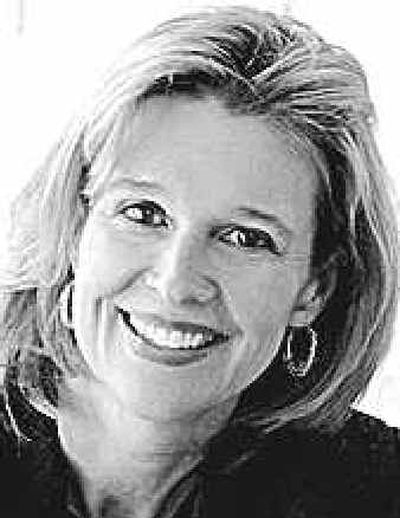As always, Reagan had timing

If one of the social graces is knowing when to leave, Ronald Reagan was a gentleman with providential timing.
His death came at just the right moment. Not for his family, though they must feel relief that his suffering is ended, but for the nation he loved. I mean this: Americans are in the throes of an identity crisis, trying at this difficult historical juncture to figure out what kind of people they are.
Are they the sadists at Abu Ghraib? Unwelcome occupiers or liberators of Iraq? Arrogant invaders bent on confiscating precious resources, or freedom fighters trying to help others claim their birthright to liberty?
To read commentary from the far left these days – or to view the world through Michael Moore’s propagandist camera lens – one is hard-pressed to find American affirmation. For the Bush-hating crowd, the leap from “we deserved it” to “Bush lied!” to “quagmire” and now to “Iraq is an unmitigated disaster” was a matter of mere baby steps.
That’s how life looks if your glass is always half-empty. If your glass is half-full, as Reagan’s surely was, you might see things differently.
You might see that Abu Ghraib was an awful act of embarrassing deviancy; that Iraq indeed has been liberated rather than occupied as we hand over the reins of government to the Iraqi people; that American gas prices indicate something other than an imperialist oil grab.
It is nice to be reminded of these things. Reagan’s death was a deus ex machina in the tragedy of American guilt and self-loathing. Not to go biblical, but his final act was divinely ironic: By his death, the man who lost his memory restored the nation’s.
An eternal optimist, as everyone can’t stop saying, Reagan embodied the spirit – dare we call it cowboy – that permitted America’s founders a vision of freedom that, for all its unattractive manifestations, beats the alternative of terrorist rule every time.
It takes an optimist to decide, for instance, that communism isn’t something to be tolerated as just another alternative lifestyle, as the ever-luminous Mark Steyn put it, but something to be condemned and obliterated. It takes an optimist to insist on Americans’ capacity for self-government rather than to comfortably rely on “those who ask us to trade our freedom for the soup kitchen of the welfare state,” to use Reagan’s words.
It also takes great courage.
At this time – which Reagan ironically missed as he wandered darkly through Alzheimer’s cramped corridors – it is helpful to be reminded of what optimism and courage can accomplish. As history surely will judge, a free Iraq and an Arab world gradually transformed by democracy are the offspring of such optimism and courage.
Other ironies have surfaced since Reagan’s passing. Anyone watching television couldn’t help noticing the reverential tone among commentators, many of whom must have been choking on their own treacle. The exaggerated golly-gee-ness of some reports was enough to curl Pollyanna’s lip.
The irony, of course, is that these same reporters, commentators and newsreaders couldn’t stand Reagan when he was president. Surely there’s some middle ground between speaking ill of the dead and intellectual honesty. Reagan was loathed by many of the same people who loathe George W. Bush today, and for many of the same reasons.
On the other hand, perhaps even those who couldn’t bear Reagan’s famous simplicity while he was president are attracted now to something more fundamental and primitive. Reagan was the human face of paternalism in a good sense. He oozed masculinity and manly virtues.
As everyone seems to have a Reagan story, I’ll tell mine. Back in 1980, I was a cub reporter and the unlikely author of a thrice-weekly political column during the run-up to South Carolina’s first-ever Republican convention. I got to see a lot of Reagan as he toured the state, and I wound up at one point in a Charleston hotel room with him, Nancy Reagan and a couple of others.
I nearly dozed off sitting there, as comfortable as if I’d been sitting in my own father’s kitchen. Therein, I suspect, lies the secret to Reagan’s tug on America’s heart. At a time when fathers are increasingly scarce in the family home, and the father of all inventions is missing from our secularized society, he filled a void.
Even those who once held him in contempt may recognize with Reagan’s passing something missed — that quiet authority, calm strength and humorous dignity all bound up in the self-deprecating humility born of faith in something greater.
It is good to be reminded.